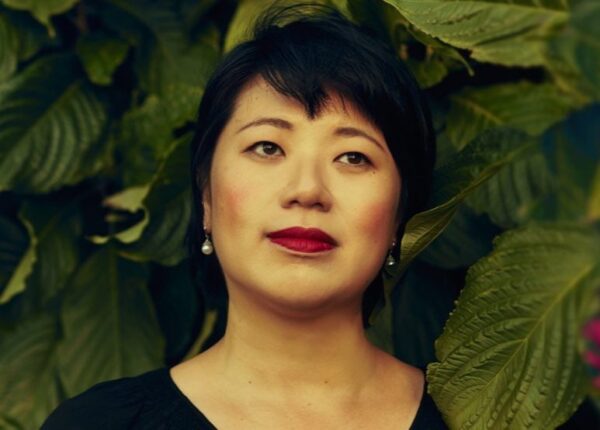
Poet Eileen Chong tells us that the highlight of her career has been her impact on younger generations.
FWA: Can you remember what first attracted you to the writing of poetry? And how has this impulse changed for you over the years?
EC: Oddly enough for me, whose grandparents were largely illiterate, whose parents’ first language isn’t English, I fell in love with poetry at a young age, through books. I never did think I would write poetry, though, and became an accidental poet when I took an introductory poetry class at the University of Sydney with the poet Judith Beveridge. I feel very fortunate to have found such a suitable teacher at the right time in my life, and have kept on writing. When I first started writing more than 15 years ago, I often felt like I was searching for something noteworthy to write about. I also felt a great impetus to write as much as I could, as I came to the writing of poetry a little later than most. These days, the poetry comes a little slower, a little gentler, and I no longer fret about having ‘topics’—I have accepted that poetry is made of the stuff of our lives, and will come when it needs to come.
FWA: I’ve been following your career for over ten years now, and I’ve watched you go from strength to strength. What has been a real career highlight for you as a poet?
EC: I have been thrilled to have my first collection, Burning Rice, on the school syllabus for HSC English for a number of years now. It allows me to visit schools to talk to students about poetry, and to teach poetry. I have formal teaching qualifications, and this allows me to indulge both of my passions in life. I am also grateful to be able to see first-hand the effects my poetry has had on a generation of students, particularly in the area of raising the visibility of Asian Australian writing as part of mainstream literary discourse. I am also grateful that I have been able to continue writing at all, and that I have, over the years, found wonderful publishers who have been very supportive of my art.
FWA: How did studying poetry in a workshop environment improve your poetry?
EC: I think initially when I started studying the craft of poetry, there was a feeling of great pressure to produce only ‘perfect’ poems. One of the greatest lessons I learnt in the workshop environment was how a draft was a good place to start from, and that the real art of writing lies in the revision of your drafts. Feedback from the instructor and also fellow participants helps you to gauge any gap between your intentions and the poem, and also to develop your own opinions around your writing. It gave me a lot of confidence also to see others go through similar processes, and a sense of community that we were all wrestling with our own craft in different ways towards a stronger version of our writing.
FWA: Who are the poets you read and re-read and who inspire you to return to your craft with renewed vigor?
EC: I am in great admiration of many poets, but I return over and over to Li-Young Lee, Ouyang Yu, Victoria Chang, Boey Kim Cheng, Bella Li, Rick Barot, Sandra Lim, Judith Beveridge, Joanne Burns, Linda Gregg, Ada Limon, Philip Levine, Jennifer S. Cheng, Lisa Gorton, Judith Bishop… frankly, almost every poem I read helps bring my own words to the fore, as an intellectual and emotional response. I feel like the space between the poet and the reader is full of possibilities; it is a space of communion and conversation.
FWA: What do you hope students of Writing Poetry will gain from your course?
EC: I hope that students will come with an open mind and heart and deepen their relationship with poetry as a craft. That they will fall in love with poetry even as they learn about the tools available to them as a poet, and discover some sense of what kind of poet they might be over the course of their writing life thus far and to come. That they will leave the course feeling more confident, more connected, and more energised about the possibilities of poetry in their lives.
This course has one scholarship place available for a writer who would otherwise not be able to afford to attend. Applications from people who identify as diverse (eg. Indigenous, minority ethnic background, LGBTIQA, living with disability) are especially welcome.
To apply, please submit a link to a published story, along with a cover letter outlining why you are interested in the course, and how you would benefit from the scholarship. Please address applications to Pip Smith at faberwritingacademy@allenandunwin.com, with the subject line ‘Scholarship Application: Writing Poetry’.
Applications for this scholarship will close on Thursday 17 October 2024.
Bookings are currently open for our Writing Poetry course Eileen Chong.
Writing Poetry
with Eileen Chong
ONLINE
Wednesdays 6.30pm – 8.30pm (AEST)
30 October – 18 December 2024